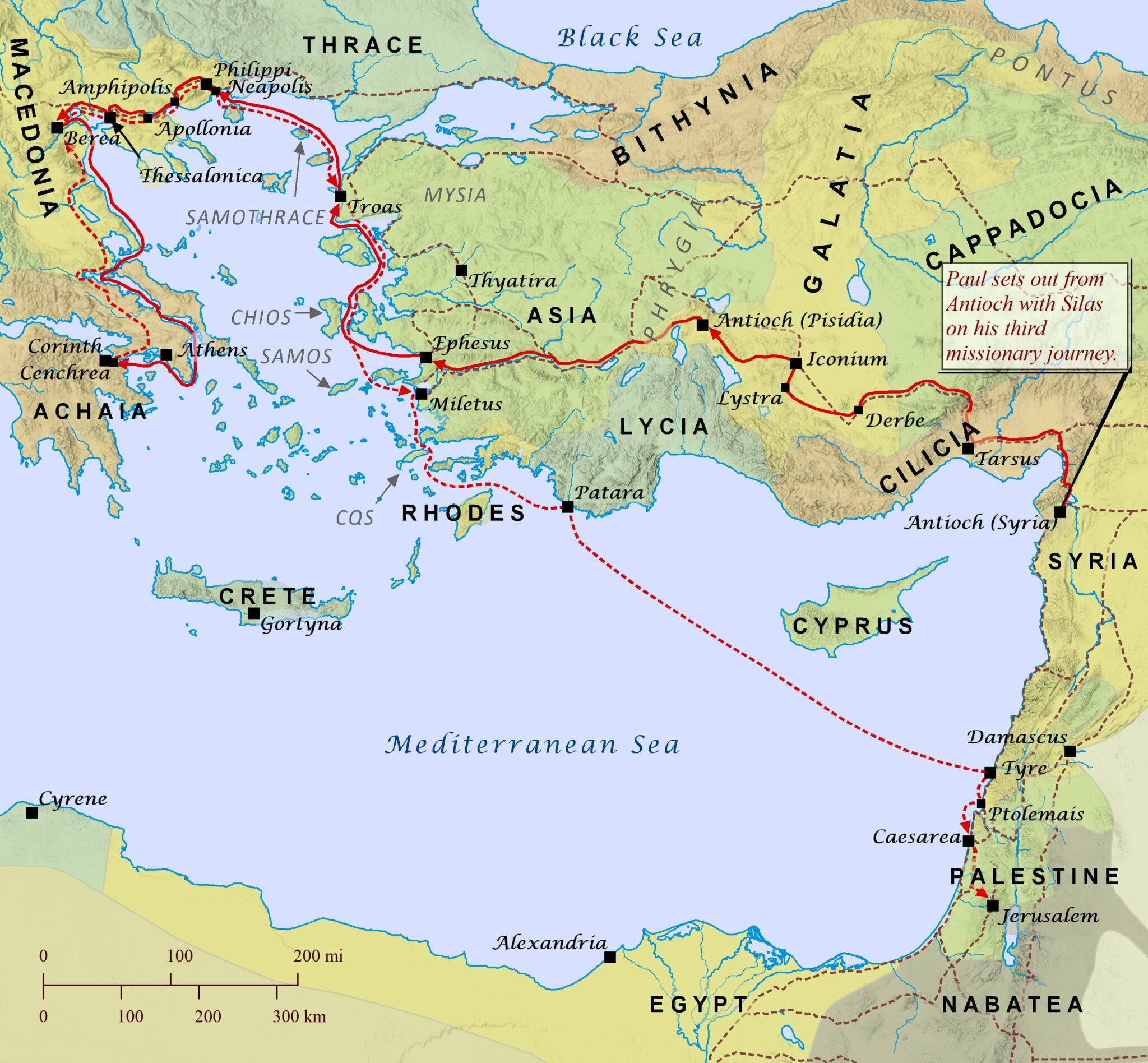Christians should not condemn one another over opinions, but instead should live sacrificially and harmoniously with each other.
Paul summarizes what he has taught thus far in this chapter. He tells the believers in Rome therefore let us not judge one another anymore, but rather determine this—not to put an obstacle or a stumbling block in a brother’s way (v 13).
Paul does not want them to argue over opinions (v 1) because it will harm the righteous and harmonious living that we believers should be pursuing (Romans 12).
To illustrate this, Paul repeats the example he covered previously in Romans 14:1-6. The attention given to this topic would indicate that there was a debate over which foods God deemed okay for eating, and which foods were not okay. Even to this day there is common practice among Jews and Christians whether to abstain from eating certain foods. This can include those foods listed in the Old Testament as “unclean.” But Paul asserts that nothing God made is intrinsically unclean:
I know and am convinced in the Lord Jesus that nothing is unclean in itself; but to him who thinks anything to be unclean, to him it is unclean (v 14).
Paul says that even though he is convinced that no food is unclean, if another believer determines a certain food to be unclean, then that believer should not eat it. It is unclean as a matter of conscience.
This is because anything we do apart from faith is sin (Romans 14:23). So, if a believer eats or drinks something he believes he shouldn’t, then eating or drinking those things would be sinful for him. If we can’t do something with faith that God determined it as good or ok for us to do, we shouldn’t do it. Further, we should learn to see what others see and stand in their shoes so that we can also avoid leading them to do anything that they do not believe is right and good.
The main thing we want to do is serve others in love, so that means we need to understand what blesses people and what harms them, and endeavor to bless them: For if because of food your brother is hurt, you are no longer walking according to love. Do not destroy with your food him for whom Christ died (v 15).
In order to walk in righteousness, which is the main point of Romans, we must walk according to love. The Greek word translated here as love is “agape” which is making choices based on values. The values can be bad, as in 1 John 2:15 which instructs us not to love (“agapeo”) the world. But here the context is to make informed choices to seek the welfare of our brother.
This means we listen to, study and understand our brother, so we know their perspective. It also implies that our focus is external, thinking of them and their greatest benefit. It further infers that we do this in all things that might be controversial, including mundane everyday things like food.
To walk according to God’s (good) design is to walk in the faith that seeking the best for others is in our own best interest. This is in part because when we live this way we escape our own flesh, which leads us to death (Galatians 6:8; James 1:21). It is also in part because each of us will give an account to God, and receive rewards for deeds done while living on earth (Romans 14:12; 1 Corinthians 3:11-15; 2 Corinthians 5:10; Revelation 3:21).
Thankfully, God has granted His Spirit to all who believe, that we might have the resurrection power to walk in His ways. That is a primary theme of Paul’s letter, and the path he desires each believer to take (Romans 1:16-17, 8:4).
Biblical Text
13 Therefore let us not judge one another anymore, but rather determine this—not to put an obstacle or a stumbling block in a brother’s way. 14 I know and am convinced in the Lord Jesus that nothing is unclean in itself; but to him who thinks anything to be unclean, to him it is unclean. 15 For if because of food your brother is hurt, you are no longer walking according to love. Do not destroy with your food him for whom Christ died.
Check out our other commentaries:
-
Genesis 10:9-14 meaning
Nimrod was a mighty hunter. He built the kingdom of Babel and in Assyria, he built the city of Nineveh. Mizraim had seven sons. ...... -
Mark 1:2-3 meaning
Consistent with his straightforward writing style, Mark goes directly to the point by referencing two Old Testament prophecies about the forerunner who will precede and...... -
Exodus 4:13-17 meaning
Moses’ fifth objection can be summarized by the phrase “Find someone else.” ...... -
Deuteronomy 11:18-21 meaning
The Israelites are instructed to constantly reflect on God’s covenantal laws, to diligently teach them to their children, and to share these laws with the...... -
Deuteronomy 12:20-25 meaning
Moses again told the Israelites that they were allowed to slaughter of their herd and flock and eat their meat within their gates when the......



